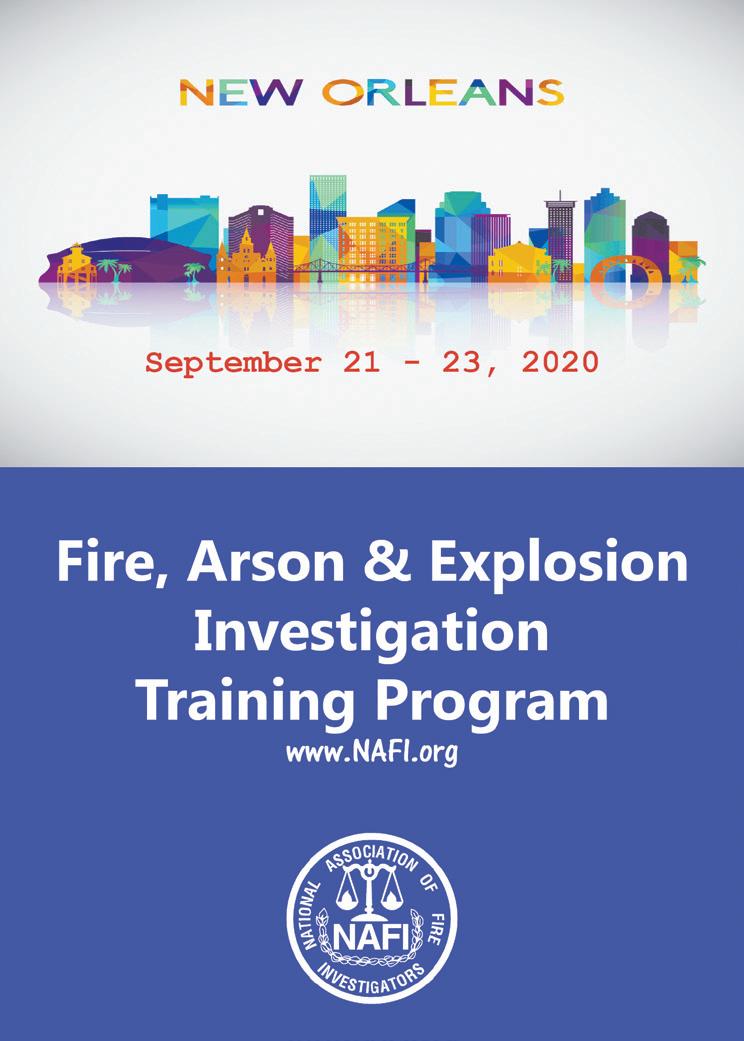Your Rights
COVID-19
Firefighters and Workers’ Compensation For more than two months, most of the nation has stayed at home under some form of national guideline or order by a state governor. At Bill Smith the same time, healthcare workers, first responders and other essential workers have put their health and lives as well as that of their families on the line. Most of you have probably gone to work each day thinking,“if I get sick, at least I’m covered by workers’ comp.” Is that thought correct? The answer may be much more complicated than you would have ever imagined. Most firefighters are employed by a city or county government. As such,
any workers’ compensation claim would be filed under the jurisdiction of the workers’ compensation law of the state in which they work. In virtually every state, workers’ compensation benefits are the exclusive remedy for a worker who is injured on the job. That means that the only claim that can be filed against the employer for the injury, or in this case sickness, is a workers’ compensation claim. As it relates to COVID-19, states fall into three categories. The categories are states where COVID-19 is likely compensable; states where COVID-19 claims are likely not compensable; and states where we simply don’t know which way these cases will be decided
Accident or Occupational Disease Without getting too technical,
most states recognize job-related conditions as either an accident or an occupational disease. Examples in their simplest form would be that of someone falling from a ladder as an accident and someone developing brown lung disease from years of working in a textile plant as an occupational disease. Each state may have a somewhat different definition of an accident and of an occupational disease. From the examples cited above, even without knowing each state’s definition you might realize that coronavirus infections may not fit squarely under either definition. The moment of infection of COVID-19 is likely related to a single one-time exposure as opposed to months or years of inhalation of particles so this
looks more like an accident. However, there is no outward trauma and the disease process itself is more akin to an occupational disease. Further, some states exclude “ordinary diseases of life” as being compensable as an occupational disease. So, which is it and how do you proceed in your state? The answer once again depends on the law in your state. As a South Carolina workers compensation lawyer, I would file it both ways. However, I think that it fits the definition of accident better in South Carolina. In speaking with my colleagues in North Carolina, many of them seem to believe it better fits the definition of an occupational disease in North Carolina.
Burden of Proof The burden of proving that COVID-19 was contracted by a worker on the job is on the worker. Think about that for a moment. You’re a first responder running to multiple scenes per day, transporting sick and potential COVID-19 patients to emergency rooms daily. Not only that, but you live with your co-workers at the fire station who have been doing the same thing on other calls exponentially increasing your exposure risks. However, at the same time we are seeing community spread of coronavirus. How do you prove that the exposure you had two weeks ago transporting a patient from a nursing home to a hospital is the event that caused your positive test? The defense will be trying to cast doubt to show that you could have acquired the infection pumping gas, stopping at a restaurant to pick up takeout food, or from your neighbor. Clearly, the most likely source of infection is at work but how do you prove that definitively? In almost every case, you have to have a medical opinion stated to a reasonable degree of medical certainty that the infection was most probably caused by your exposure at work. Can this be done? The answer is yes but the more exposure you can show, the more likely you are to prevail
Presumptions Many firefighters are familiar with heart attack, cancer and post-traumatic stress disorder presumptions that have been passed in some states around the country over the last few years. These presumptions are designed to make it easier for first responders to obtain workers’ compensation benefits should they suffer from these disorders or diseases that happen all too frequently because of exposure on their jobs. As of this writing, 13 states have passed some form of presumption for healthcare workers and first responders who test positive for COVID-19. I am privileged to serve as President of WILG (WORK INJURY LAW and Advocacy Group). WILG’s mission is to protect the rights and benefits of injured workers across the country. In early April we issued
36 Summer • 2020
www.carolinafirejournal.com
Carolina Fire Rescue EMS Journal























